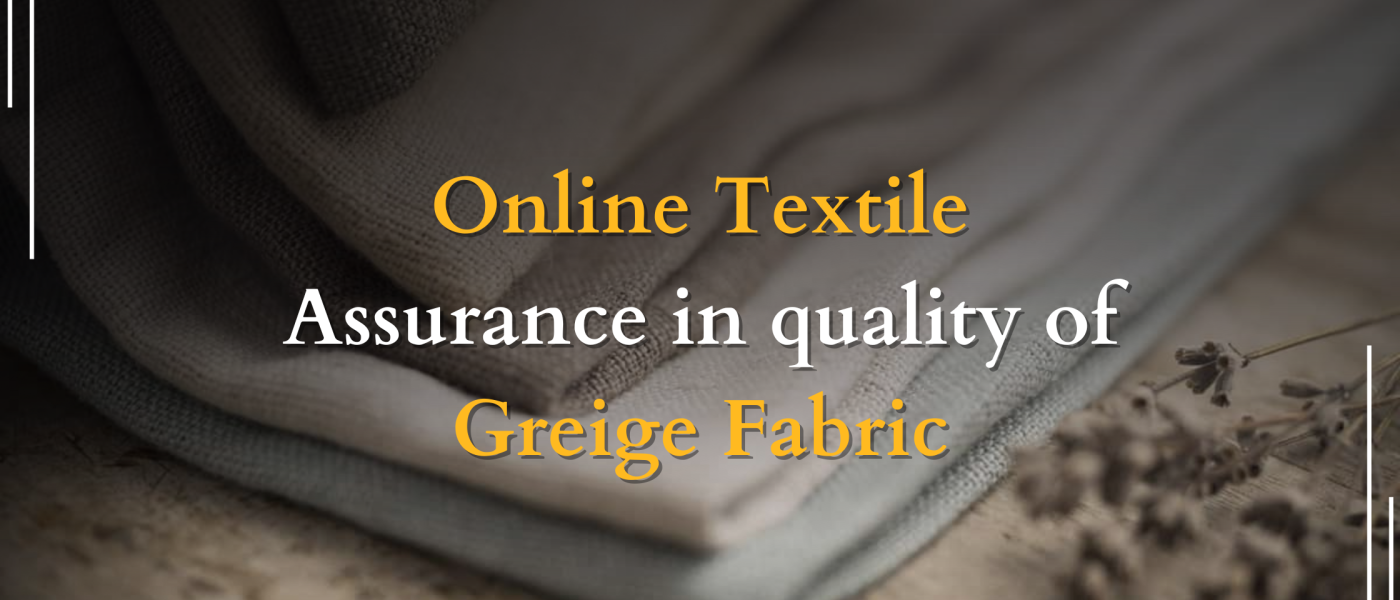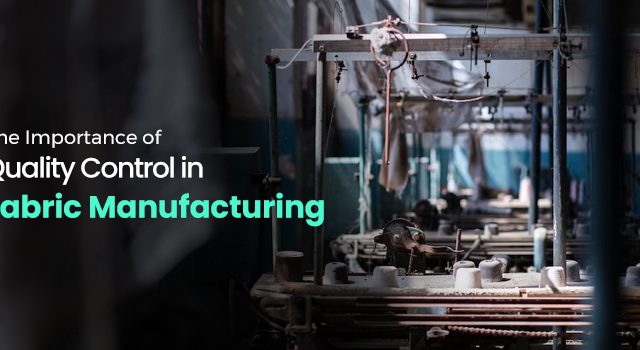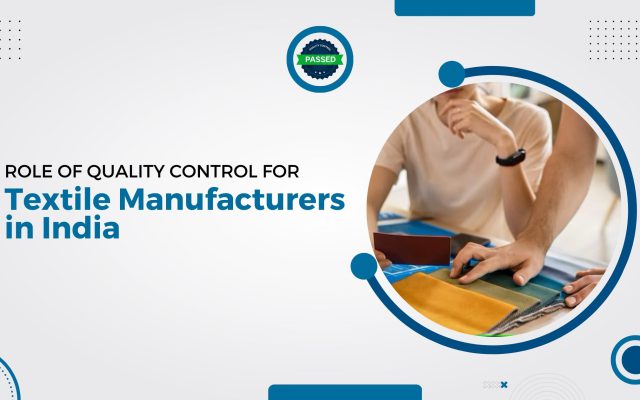Within the online textile sector, maintaining a strong brand identity holds utmost importance. For greige fabric manufacturers venturing into online sales, maintaining a consistent level of excellence is important to enhance sales and attain positive ratings on platforms like TEXchange. This is particularly true for Indian online textile suppliers catering to esteemed international B2B clients. Be it in cultivating crops, crafting fiber and yarn, or manufacturing greige fabrics, upholding quality benchmarks is non-negotiable throughout the entire online textile production process.
Textile manufacturers in India must avoid errors that could harm relationships with foreign buyers. For example, Under Armour had to recall over 2 lakh Athletic Cups sports gear due to negative reports of the cups causing bruises and injuries. Effective Quality Assurance Management Systems can prevent such incidents.
What Are the Quality Parameters in Textile Manufacturing?
Quality Assurance has two main parameters: Product quality and Process quality. In India, manufacturers in the textile industry maintain export quality based on national regulatory quality certification and international quality programs such as ISO 9000 series.
Product Quality: This refers to the quality of the fabric, such as its strength and durability, color fastness and color variations, appearance, design, measurement and dimensional stability, safety, price, labeling and packaging, and online availability.
Process Quality: This refers to the production process standard, which includes workers’ skill and adequacy, general practices, machinery, techniques and technology, materials, and cost.
Quality assurance allows fabric manufacturers to minimize defects, improve production and efficiency, reduce costs, and enhance customer satisfaction.
Challenges in Quality Assurance
Particular challenges can arise for greige fabric manufacturers when they buy cotton yarn online. Therefore, proactive measures should be taken beforehand to mitigate these issues. Cotton fabrics, a primary choice for apparel exporters, are typically sourced from power looms, mills, and handloom industries. Each of these sectors presents distinct challenges for textile exporters. Sourcing cotton from handloom sectors may lead to problems such as missing ends and picks, variation in color, defective supplies, and uneven weaves.
In power loom cotton sourcing, issues like broken ends, reed marks, varying widths, thick and thin areas, and significant cost variations can arise. Mill-made fabric sourcing presents the challenge of fulfilling large demands from mills. It requires placing fabric orders well in advance, and the prolonged production time raises concerns for apparel exporters. Moreover, mills are often reluctant to fulfill small orders, creating a predicament for smaller-scale exporters.
Fabric sourcing challenges aren’t limited to cotton alone; they extend to other fabric types as well, including synthetic and silk. Silk garment exporters encounter specific issues within the silk garment industry. Common problems include shortages of imported silk yarn in required quantities, leading to delivery delays, staining of silk fabric during production, insufficient silk yarn roll’s length, and inefficient color fastness.
How Can Greige Fabric Manufacturers Implement Effective Quality Assurance?
Quality Assurance must be performed at various stages of textile production. It is usually carried by QC and QA inspectors who check the defects and other issues in production before the products go out for export. Below are a few expected quality assurance practices that you can implement in your textile manufacturing process:
Assess the Supplier’s Track Record
Before you buy cotton yarn online, check the yarn suppliers’ ratings and reviews on TEXchange Global and confirm their credibility. If possible, perform an on-site inspection and audit to check their process, productivity, and efficiency. Since onsite evaluation may not be feasible for overseas suppliers, you can ask for certifications and videos for assurance.
The good news is that manufacturers can now find verified wholesale cotton suppliers online in India and overseas through the TEXchange Global trading platform, check their prices, compare quotes, and negotiate rates before placing an order.
Implement Comprehensive Statistical Sampling
You can perform two sampling approaches to improve quality control: Random Sampling and Stratified sampling. Random sampling involves selecting fabrics at random from each batch and sending them for testing in certified labs. This technique helps manufacturers assess the overall quality of the textile batch.
Stratified Sampling involves categorizing the fabrics into different groups based on color, texture, size, and type. Samples are then randomly chosen from each group. This technique is particularly helpful when dealing with a diverse fabric variation in each batch.
Apply for Third-Party Testing Certifications
Third-party testing certification is a pivotal tool to maintain quality standards and provide assurance to buyers. Third-party certification involves independent organizations reviewing your processes and products.
Numerous standards and certifications exist within the textile value supply chain, each contributing to business enhancement.
ISO 9001 (2015): An internationally recognized quality management system that necessitates adherence to quality, management, customer, and regulatory requirements. ISO certification is favored by Damodar Menon International and recommended for wholesale fabric suppliers online in India.
Global Organic Textile Standard (GOTS): GOTS is the world’s first testing standard for validating organic textile materials. To be qualified for GOTS certification, products must be at least 70% organic.
Fair Trade: An initiative by the World Fair Trade Organization dedicated to ensuring equitable wages and working conditions for textile workers in developing countries.
OEKO-TEX (Standard 100): This certification assures buyers of the absence of harmful substances in textile manufacturing.
Worldwide Responsible Apparel Production (WRAP): A non-profit organization promoting ethical manufacturing and supply of textile products.
BlueSign: Focused on responsible raw material and resource use, BlueSign certification aligns with eco-friendly and safety standards, particularly appealing to eco-conscious textile companies in india.
Zero Discharge of Hazardous Chemicals (ZDHC): Encompassing the environment and well-being, ZDHC-certified companies address toxic substances from production processes before release.
Steps to Establish Clear Quality Standards
Quality assurance involves visual inspection as well as automated/manual evaluation for measuring production processes and the quality of finished products. Here are the essential steps required to establish an effective quality assurance system in fabric production:
- Develop detailed production and product specifications
- Define tolerant levels for defects and shortcomings
- Set product and production performance benchmarks
- Implement real-time monitoring and process automation
- Address defects, deviations, and changes in real-time
- Set up effective communication with suppliers and stakeholders via multiple channels
- Define a collaborative problem-solving approach where everyone is involved in decision making
In the competitive realm of online textile trading, upholding impeccable quality is crucial. Greige fabric manufacturers, especially those who sell fabric online through the TEXchange Global platform, must navigate unique challenges in production. By implementing a robust quality assurance system, businesses can fortify their brand reputation and foster long-term B2B relationships.




